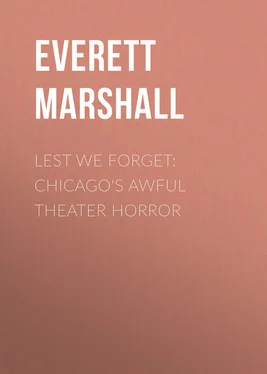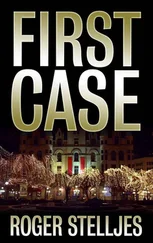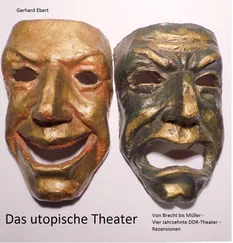Marshall Everett - Lest We Forget - Chicago's Awful Theater Horror
Здесь есть возможность читать онлайн «Marshall Everett - Lest We Forget - Chicago's Awful Theater Horror» — ознакомительный отрывок электронной книги совершенно бесплатно, а после прочтения отрывка купить полную версию. В некоторых случаях можно слушать аудио, скачать через торрент в формате fb2 и присутствует краткое содержание. Издательство: Иностранный паблик, Жанр: foreign_antique, foreign_prose, на английском языке. Описание произведения, (предисловие) а так же отзывы посетителей доступны на портале библиотеки ЛибКат.
- Название:Lest We Forget: Chicago's Awful Theater Horror
- Автор:
- Издательство:Иностранный паблик
- Жанр:
- Год:неизвестен
- ISBN:нет данных
- Рейтинг книги:3 / 5. Голосов: 1
-
Избранное:Добавить в избранное
- Отзывы:
-
Ваша оценка:
- 60
- 1
- 2
- 3
- 4
- 5
Lest We Forget: Chicago's Awful Theater Horror: краткое содержание, описание и аннотация
Предлагаем к чтению аннотацию, описание, краткое содержание или предисловие (зависит от того, что написал сам автор книги «Lest We Forget: Chicago's Awful Theater Horror»). Если вы не нашли необходимую информацию о книге — напишите в комментариях, мы постараемся отыскать её.
Lest We Forget: Chicago's Awful Theater Horror — читать онлайн ознакомительный отрывок
Ниже представлен текст книги, разбитый по страницам. Система сохранения места последней прочитанной страницы, позволяет с удобством читать онлайн бесплатно книгу «Lest We Forget: Chicago's Awful Theater Horror», без необходимости каждый раз заново искать на чём Вы остановились. Поставьте закладку, и сможете в любой момент перейти на страницу, на которой закончили чтение.
Интервал:
Закладка:
Two flickering lanterns shed the only light by which the policemen worked, and this very fact, perhaps, made their task more horrible and gruesome, if such a thing were possible.
All through the gallery the bodies were found. Some were those of persons who had decided to stay in their seats and not to join in the mad rush for the doors and run the risk of being trampled to death. Many of them no doubt had trusted to the cries, "There is no danger; keep your seats!"
They had stuck to their seats until, choked by the heavy smoke, they had been unable to move.
Some bodies were in a sitting position, while others had fallen forward, with the head resting on the seat in front, as though in prayer. Almost all were terribly burned.
In the aisles lay women and children who had staid in their seats until they finally were convinced that the danger was real. Then they had attempted to get to the door.
The smoke was so heavy the firemen worked with difficulty, but finally it cleared and workmen who were hastily sent by the Edison company equipped forty arc lights, which shone bravely through the smoke. With this help the firemen searched to better effect, and found bodies that in the blackness they had missed.
"Give that girl to some one else and get back there," shouted Chief Musham to a fireman. The fireman never answered but kept on with his burden.
"Hand that girl to some one else," shouted the battalion chief.
The fireman looked up. Even in the flickering light of the lantern the chief carried one could see the tears coming from the red eyes and falling down the man's blackened cheeks.
"Chief," said the fireman, "I've got a girl like this at home. I want to carry this one out."
"Go ahead," said the chief. The little group working at the head of the stairs broke apart while the fireman, holding the body tightly, made his way slowly down the stairs.
One by one the dead were taken from the pile in the angle. The majority of them were women. On some faces was an expression of terrible agony, but on others was a look of calmness and serenity, and firemen sometimes found it hard to believe they were dead. Three firemen carried the body of a young woman down the stairs in a rubber blanket. She appeared alive. Her hands were clasped and held flowers. Her eyes were closed and she seemed almost to smile. She looked as though she was asleep, but it was the sleep of death.
In the dark and smoke, with the dripping water and the dead piled in heaps everywhere, the Iroquois theater had been turned into a tomb by the time the rescue parties had begun their work.
The moan that the frantic workers heard as they struggled to untangle the mass of bodies gave the police hope that many in the heap might be alive.
"We can't do it, chief," shouted one of the policemen. "We can't untangle them."
"We must take these bodies out of the way to get down to those who are alive," replied the chief. "This man here is dead; lay hold, now, boys, and pull him out."
Two big firemen caught the body by the shoulders and struggled and pulled until they had it free. Then another body was taken out, and then again the workers seemed unable to unloose the dead. Again came that terrible moan through the mass.
"For God's sake, get down to that one who's alive," implored O'Neill, almost in despair.
The policemen pulled off their heavy overcoats and worked frantically at the heap. Often a body could not be moved except when the firemen and police dragged with a "yo, heave," like sailors hauling on a rope. As fast as the bodies were freed one policeman, or sometimes two or three, would stagger down the stairs with their burdens.
Over the heap of bodies crawled a fireman carrying something in his arms.
"Out of the way, men, let me out! The kid's alive."
The workers fell back and the fireman crawled over the heap and was helped out. He ran down the stairs three steps at a time to get the child to a place where help might be given before it was too late. Then other firemen from inside the theater passed out more bodies, which were handed from one policeman to another until some on the outside of the heap could take the dead and carry them downstairs.
Suddenly a policeman pulling at the heap gave a shout.
"I've got her, chief!" he said. "She's alive, all right!"
"Easy there, men, easy," cried Schuettler; "but hurry and get that woman to a doctor!"
A girl, apparently 18 years old, was moaning faintly. The policeman released her from the tangled heap, and a big fireman, lifting her tenderly in his arms, hurried with her to the outside of the building.
"There must be more alive," said the chief. "Work hard, boys."
There was hardly any need to ask the men to work harder, for they were pulling and hauling as though their own lives depended on their efforts. Everybody worked.
The reporters, the only ones in the theater besides the police and firemen, laid aside their pencils and note books and struggled down the wet, slippery stairs, carrying the dead. Newspaper artists threw their sketch books on the floor to jump forward and pick up the feet or head of a body that a fireman or policeman found too heavy to carry alone. Constantly now a stream of workers was passing slowly down the stairs. Usually two men supported each body, but often some giant policeman or fireman strode along with a body swung over his shoulders. Coming down the stairs was a fireman with a girl of 16 clasped in his arms.
"Isn't that girl alive?" asked the chief.
"No," shouted two or three men, who had jumped to see. "She's dead, poor thing, rest her soul," said the fireman reverently, and then he picked his way down the stairs. Half-way down the marble steps two arms suddenly clasped the fireman's neck.
He started so he missed his footing and would have fallen had not a policeman steadied him.
"She's alive, she's alive!" shouted the fireman. "Git out of the way, there, out of the way, men," and he went dashing headlong out into the open air and through the crowd to a drug store.
One child after another was taken from the heap and passed out to be carried downstairs. Some were little boys in new suits, sadly torn, and with their poor little faces wreathed in agony. On their foreheads was the seal of death.
A big fireman came crawling from the heavy smoke of the inner balcony. He carried a girl of 10 years in his arms. Her long, flaxen hair half covered the pure white face.
A gray haired man with a gash on his head apparently had fallen down the stairs. A woman's face bore the mark of a boot heel. A woman with a little boy clasped tight in her arms was wedged into a corner. Her clothes were almost torn from her, and her face was bruised. The child was unmarked, as she had thrown her own body over his to protect him.
Out of the mass of bodies when the police began their work protruded one slender little white hand, clinching a pair of pearl opera glasses, which the little owner had tried to save, in spite of the fact that her own life was being crushed out of her. Watches, pocketbooks and chatelaine bags were scattered all through the pile. One man was detailed to make a bag out of a rubber coat and take care of the property that was handed to him.
While the police were working so desperately at the fatal angle, another detail of police and firemen were working on the third floor. At the main entrance of the gallery lay another heap of bodies, and there was still another at the angle of the head of the stairs leading to the floor below. Here the sight was even worse than the terrible scene presented at the landing of the first balcony.
The bodies on the landing were not burned. A jam had come there, and many had been stamped under foot and either killed outright or left to suffocate. Many of the bodies were almost stripped of clothing and bore the marks of remorseless heels.
Читать дальшеИнтервал:
Закладка:
Похожие книги на «Lest We Forget: Chicago's Awful Theater Horror»
Представляем Вашему вниманию похожие книги на «Lest We Forget: Chicago's Awful Theater Horror» списком для выбора. Мы отобрали схожую по названию и смыслу литературу в надежде предоставить читателям больше вариантов отыскать новые, интересные, ещё непрочитанные произведения.
Обсуждение, отзывы о книге «Lest We Forget: Chicago's Awful Theater Horror» и просто собственные мнения читателей. Оставьте ваши комментарии, напишите, что Вы думаете о произведении, его смысле или главных героях. Укажите что конкретно понравилось, а что нет, и почему Вы так считаете.












